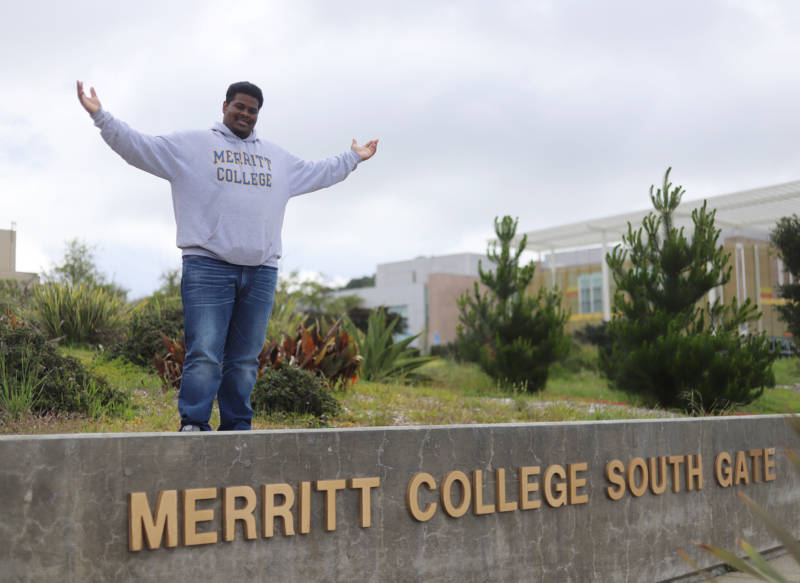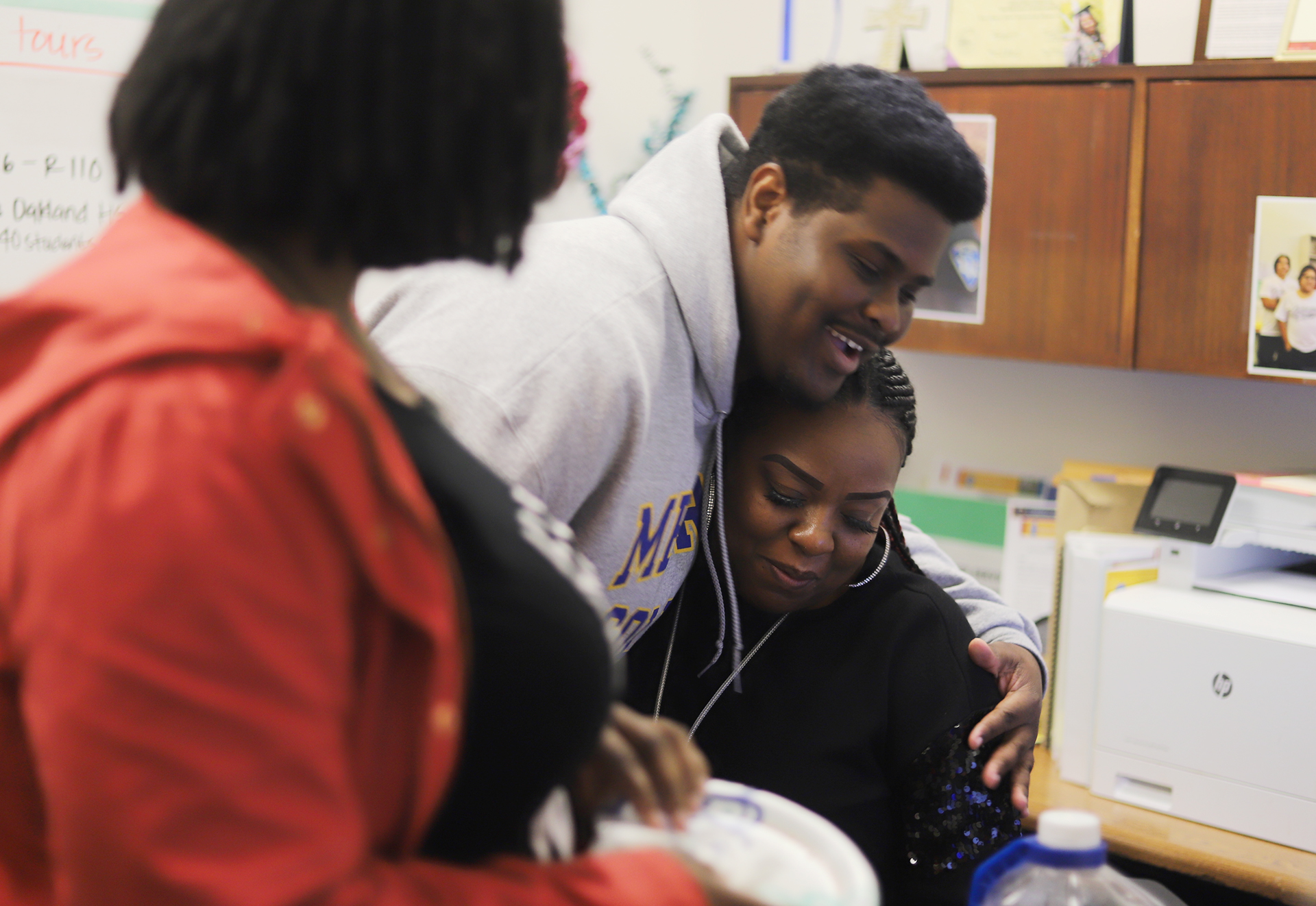When Montel Floyd graduates in May from Merritt Community College, he'll be the first person in his family with a college degree.
At These High Schools, Enrolling in College Isn't Just Encouraged, It's Required

And it's been a long journey. Floyd, 23, fell behind in middle school and had to repeat a year of high school.
But he was determined to pursue higher education. "I always wanted to go to college," Floyd said.
One crucial factor was a commitment at Center High School in Antelope, California, where Floyd attended, to walk every graduating senior through the college enrollment and financial aid process, what counselors call a "high touch" approach.
At Center High, the key to Floyd's success was a mandatory consumer finance course taught by an instructor named Joe Gomes, who required all seniors in his class to complete and submit college application and financial aid forms.
"Everything that we could do in class we did," said Floyd. "He taught us about financial aid. He taught us about taxes. ... He dotted his I's and he crossed his T's and I love Mr. Gomes for that."
Although most high schools encourage students to attend college, few do so as doggedly as Center, where students who are generally the first in their families to go to college, are guided through the sometimes bewildering application and financial aid processes.
The school's effort is an acknowledgement of the harsh reality that the majority of young people today who only have a high school diploma are unlikely to reach the middle class. It's a fact that's particularly acute for low-income, minority students, who attend college at disproportionately lower rates.

At Apollo High School, a continuation program in San Jose, seniors are also required to enroll in some form of college and complete financial aid forms. Counselors and teachers work intensively with the school's roughly 80 graduating seniors.
"Fifty percent of our parents have never graduated from high school," said Laurie Brant, who runs Apollo's academic program. For many Apollo students and their families, she noted, graduating from high school is already considered a huge accomplishment.
"But that doesn't give our kids the capital to know how to navigate the community college system," she said. "They don't know how to sign up, they don't have computer access or Wi-Fi at home. ... We remove those barriers for them."
In the weeks before graduation, three financial aid administrators, all bilingual Spanish speakers from nearby community colleges, come to Apollo High to help parents and students complete their federal student aid forms and apply for scholarships. Participation is mandatory.
During one recent session inside a portable classroom, students and their parents sit at laptops completing forms, as counselors provide guidance.
Angel Escamilla, an Apollo senior, and his mother Cecilia, meet with the college counselors to determine the amount of financial aid Angel can receive, and to make sure his application is in order.
"It is very crucial for him to have some kind of financial aid for him to be able to go, because I would not be able to help him at all, unfortunately," Cecilia Escamilla said.
She said the school's counselors already helped them in November to fill out her son's college applications.
In contrast, neighboring William C. Overfelt High School, which is many times larger than Apollo, can't offer the same degree of personalized college prep support.
"There are so many ways the deck is stacked against our families," said Vito Chiala, Overfelt's principal. "Kids slip through the cracks. We wish we had the resources Apollo has."
The vast majority of Overfelt's 1,500 students are Latino and almost all students qualify for free or reduced lunch. In California, 65% of Latinos between 25 and 64 have never attended any college, according to College Competes, a higher education policy group.
When his students fall behind to the point where they won't be able to graduate, Chiala often sends them next door to seek help from Brant.
For Montel Floyd, Center High's "high touch" approach was the push he needed to continue his education, the kind of guidance he said he wouldn't have gotten at home. Floyd's mother, who was disabled and completely unfamiliar with the college application process, had pushed him to get a job straight out of high school.
"That's what they did back in the day: They graduated from high school and went right into the workforce," said Floyd.
With support from his school, Floyd ended up at Merritt College, where he will receive an associate degree in social behavioral sciences in May.
He hopes to transfer to Humboldt State in the fall, and plans to pursue a master's degree.
"My whole life I've invested in other people's lives, taking care of my parents and family," Floyd said. "Now I'm investing in me."
This story is part of our series The College Try, about what it takes for students who don't come from means to get a higher ed degree in California today.
